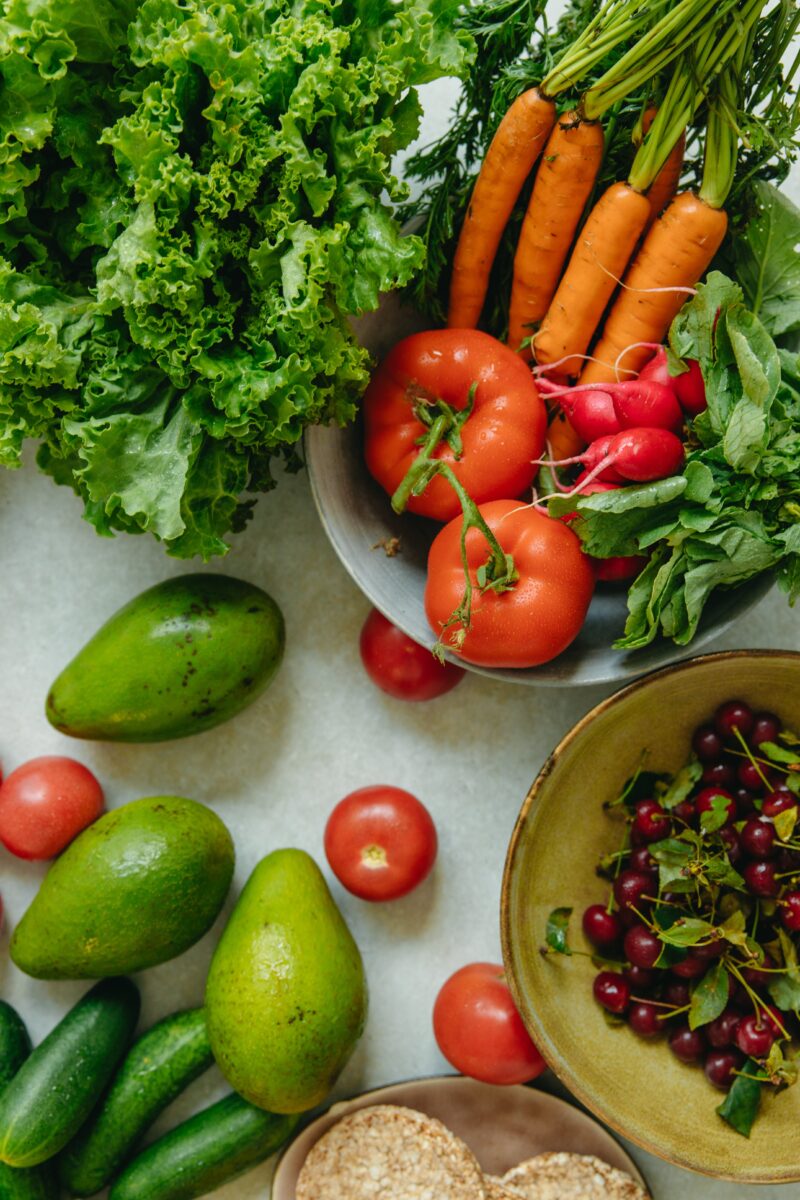
Everyone knows how important the right diet is for sport. Many of us concentrate on what we should eat before, during and after training to boost our performance and achieve our goals. But what about your diet during training breaks? This aspect is often ignored, even though it is just as important. In this blog article you’ll find out what you need to remember to stay fit and healthy during training breaks.
Why are training breaks important?
Before we focus on diet, it’s important to understand why we actually need to have training breaks. When we train, we put our muscles under strain which can cause minor injuries. Breaks give your body time to relax, recover and become stronger. Breaks can also prevent injuries and stop you from overtraining.
The role of diet during training breaks
During training breaks, your energy requirements are different because you are less active. Having the wrong diet in this period can lead to weight gain and muscle loss. There are a few important points that you need to bear in mind:
Adapt your calories: Reduce your calorie intake to balance out the reduced energy requirement during the training break. However, make sure you always eat enough to keep your body healthy.
Keep eating protein: Protein is critical for muscle recovery and maintenance. Make sure you incorporate enough protein in your diet to prevent muscle wastage. Lean meat, fish, pulses and dairy products are all good sources of protein.
Include healthy fats: Healthy fats like avocado, nuts and olive oil are important for overall health. They also help your body absorb fat-soluble vitamins and leave you feeling full for longer.
Carbohydrates in moderation: Your activity level is lower during breaks, so you need less carbohydrates. Choose complex carbohydrates like wholegrain foods, vegetables and pulses. It takes the body longer to break down complex carbohydrates, which keeps you full for longer. Complex carbs also keep your blood sugar level stable.
Don’t forget hydration: Drink plenty of water, even during training breaks. Hydration is critical for both your health and your performance. Try to drink at least 2-3 litres of water a day.
Think about your own needs
It is important to remember that nutritional needs during training breaks can vary from person to person. A professional athlete probably has different requirements to someone who only plays sport occasionally. Advice from a nutritionist or a sport doctor can help you work out your particular needs.
Food to promote recovery
Certain food and dietary supplements can speed up recovery during training breaks. Consider including the following supplements in your diet:
- Ginger: Ginger has anti-inflammatory properties and can help to reduce muscle inflammation.
- Cherries: Cherries, particularly sour cherries, have natural anti-inflammatory properties and can prevent muscle ache.
- Omega-3 fatty acids: These essential fatty acids, which are found in fish like salmon and mackerel, can reduce inflammation and support recovery.
- Collagen: Collagen supplements can help to strengthen joints and tendons and promote the recovery of connective tissue.
The timing of meals during training breaks
When you eat plays a critical role in your diet during training breaks. By eating at specific times, you can optimise your body’s recovery process and get all the benefits of your training program. Find out the best times for your meals during training breaks here.
- Straight after training: The post-workout meal
Immediately after training is often referred to as the “anabolic window”. Your body is particularly receptive to nutrients during this period, as it is in a state where it wants to build muscle mass and repair damaged muscle fibres. It is therefore a good idea to eat a balanced meal within around 30 minutes of finishing training.
This post-workout meal should contain both protein and carbohydrates. Protein supports muscle repair and growth, while carbohydrates help to refill the muscles’ energy reserves. You could have a protein shake with fruit, or a meal that combines chicken or fish with rice or potatoes.
2. Later meals during the recovery period
In the hours after training, you should make sure any meals you eat are balanced and easy to digest. Heavy, high-fat meals can put a strain on the stomach and slow down digestion. Instead, opt for food like lean meat, vegetables and wholegrain foods. Grilled chicken fillet, quinoa and steamed vegetables might be a suitable choice, for example.
3. Snacks between meals
It might be sensible to have recovery snacks between main meals. They keep your blood sugar level stable and provide your body with constant fuel. Healthy snacks like yogurt with nuts and berries or an apple with almond butter are easy to digest and give you the energy you need for a smooth recovery.
4. Don’t forget fluids
When you drink fluids is also important. Your body loses lots of fluid during training, and it is critical to compensate for this loss. You need to drink plenty of water immediately after training and in the hours that follow. After particularly intense training sessions, isotonic drinks might also help to balance out your electrolytes.
When you eat during training breaks is critically important to optimise the recovery process and get the best out of your training. Your post-workout meal should contain protein and carbohydrates, and later meals should be easy to digest. Snacks between meals can cover your need for energy, and don’t forget about your fluid intake. Personal needs and preferences can impact timings, because it’s important to adapt your diet to your personal requirements. Getting the timing right means you can ensure your training breaks are used effectively to achieve your fitness goals.

Your diet during training breaks is just as important as your diet during training. It helps you keep your body healthy, maintain muscle mass and prepare yourself for your next training session. Remember that personal needs can vary, and if you are unsure, speak to an expert. Your body will thank you by staying healthy and fit in the long term.
Finally, we wish you a relaxing off season and say goodbye for the winter break. We look forward to getting you excited with more fun topics next year! 😊
Stay tuned and be inspired by our passion for an active lifestyle! 😉
Image source: pexels-andrea-piacquadio-3771071, pexels-yaroslav-shuraev-8845420